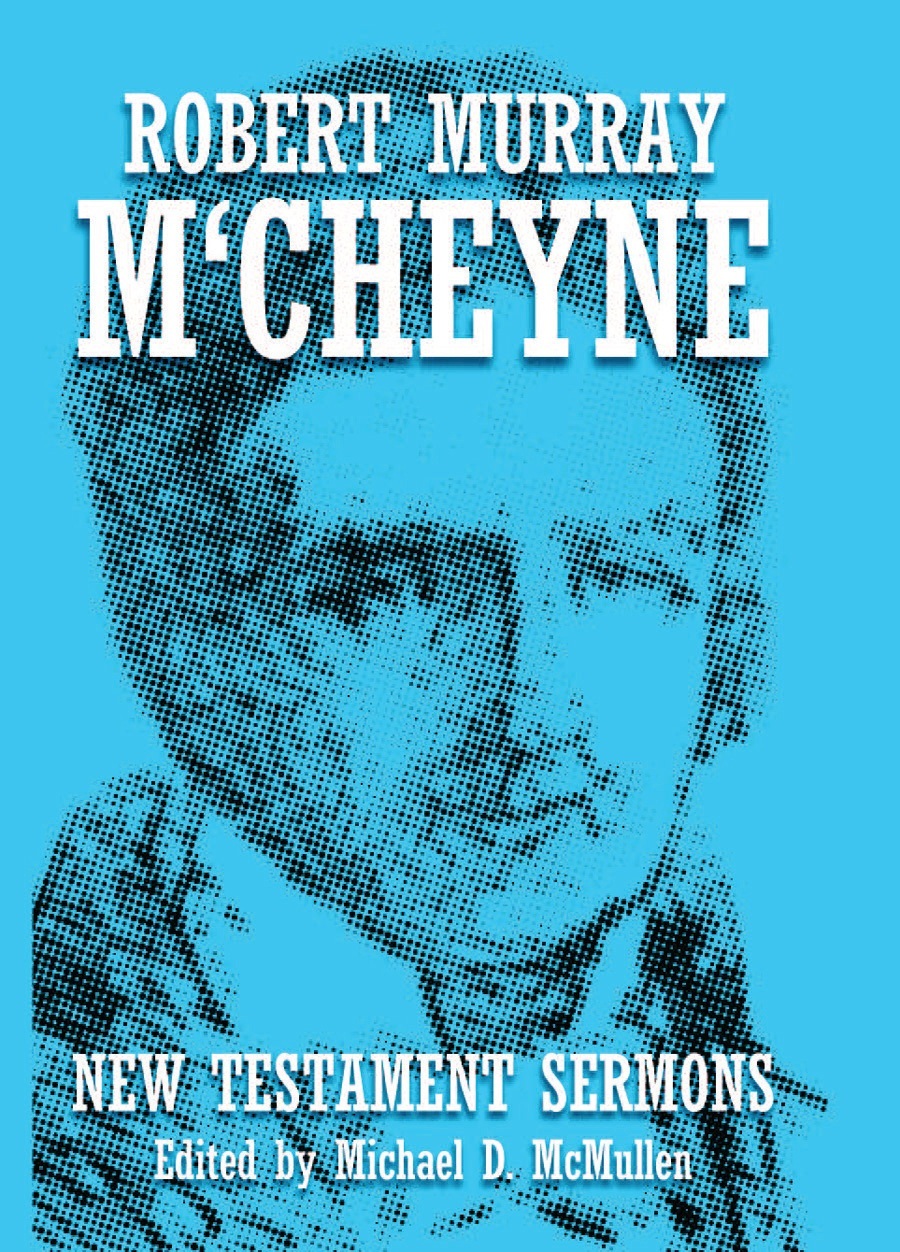Our Good Opinion of Ourselves
It belongs to God to put the world right; the Christian’s first duty is to put himself right. In so doing the believer takes the first step towards influencing others for good. But it is a difficult and an unwelcome task and one in which he can expect little help or encouragement from others. Repentance and personal reformation are the least popular part of the believer’s duty and they are normally the last items on the agenda, especially in this busy age of activism.
This, however, is a mistake and one that explains the general failure everywhere. The spirit of the world around us has blighted our appetite for communion with God and for the pursuit of inward holiness. Men crave ‘success’ in every walk of life. Progress is defined not in terms of character but of measurable and material growth. Even the moral outrages which are occurring with increasing frequency at every level of our society are incapable of proving to men that the true gold standard is not the dollar or the pound but the spiritual condition of the human heart. Experience teaches that the average Christian today, and the average church in which he is a member, is fashioned into conformity to the world far more than is realised. For every one book which is published on repentance and mortification there are a hundred which attempt to promote ‘church growth’ or else point the believer along the road to ‘success’. If the progress cannot be measured in quantitative terms it is judged unworthy of notice. As a direct consequence, the religion of the day is almost everywhere wafer thin and paper thin. Maturity is not to be found because it is not encouraged. Depths of soul or of mind are not met with because believers have no time left to cultivate the hidden man of the heart. Every spare minute must be devoted to rotating the treadmill of outward activity.
This disease of spiritual restlessness has afflicted most men who aspire to enter the pulpit. It is no longer important for a preacher to know very much. The favoured sermon is the one which skims cheerfully over the wave-tops of a text and breezily carries the hearers to familiar thoughts with no emotional crisis along the route. Provided the length be not above twenty minutes the sermon may go where it will, supping like a bee in a hundred tiny flowers as it meanders along. The old-fashioned theological sermon which imparted to hearers a ton of truth is no more expected today than it is welcomed. The modem preacher’s task is to charm, not change or challenge his audience. The preaching of a Chalmers or an Edwards is praised, and the spiritual revolution which their preaching caused is talked of with wonderment. But any thought as to its modem repetition is far from the mind.
DO WE KNOW OURSELVES?
The fault at the root of all our other faults, so it appears to us, is that our attitude to ourselves is wrong. Read the Diary of a M’Cheyne or the Confessions of an Augustine and you meet a man whose attitude to himself is disconcertingly different from that which you meet with typically in others. These great Christians viewed themselves with a sharply critical eye. They distrusted their every thought, motive and imagination. They each kept guard over themselves as a gaoler watches over his criminal inmates. They were out of love with themselves and knew themselves to be desperately sinful. They saw God, and nothing less, as supremely desirable. They felt holiness to be essential, even to Christian service.
‘I am persuaded that I shall obtain the highest amount of present happiness, I shall do most for God’s glory and the good of man, and I shall have the fullest reward in eternity, by maintaining a conscience always washed in Christ’s blood, by being filled with the Holy Spirit at all times, and by attaining the most entire likeness to Christ in mind, will and heart, that is possible for a redeemed sinner to attain to in this world’. So begins M’Cheyne’s ‘Personal Reformation’. ‘I am tempted to think that I am now an established Christian. . . This is a lie of Satan’. ‘I ought to pray and labour for the deepest sense of my utter weakness and helplessness that ever a sinner was brought to feel. I am helpless in respect of every lust that ever was, or ever will be, in the human heart.’
‘I am a worm — a beast — before God . . . there is nothing in me keeping me back from the grossest and vilest sin. . . I should study those sins in which I am most helpless. . . No figure of speech can represent my utter want of power to resist the torrent of sin’. This language is not that of a remorseful prodigal at the end of a life of worldliness. It is from the private memoirs of Robert M’Cheyne, one of the choicest ministers we know of. To much the same effect are the following words of Augustine. They are drawn from his immortal Confessions and show how closely he watched the depraved motions of his own soul and bemoaned his love of human praise. ‘By these temptations, O Lord, are we daily tried; yea, unceasingly are we tried. Our daily “furnace” is the human tongue. . . Regarding this matter [of human praise], thou knowest the groans of my heart, and the rivers of mine eyes. For I am not able to ascertain how far I am clean of this plague, and I stand in great fear of my “secret faults”, which Thine eyes perceive, though mine do not. For in other kinds of temptations I have some sort of power of examining myself; but in this hardly any. . . I beseech Thee now, O my God, to reveal to me myself also, that I may confess unto my brethren who are to pray for me, what I find in myself weak.’
TIME TO STOP SMILING AT OURSELVES
It is alarmingly clear that a great gulf lies between the attitude of these men, from whose writings we quote above, and the modern Christian. It amounts to a difference of attitude towards ourselves. They saw themselves as weak, helpless and corrupt. We feel little, if any, of their misery. On the contrary, we live in an atmosphere where self-promotion and self-advancement are the norm, even amongst religious persons. We smile indulgently at ourselves when we catch ourselves out in our infirmities. They, on the other hand, wept and sighed to find in their hearts the slightest risings of self-love or of self-confidence. The contrast could scarcely be greater.
Their secret is something we badly need to discover if we are to recover and promote the genuine Christianity of the Holy Scriptures. Let the believer learn again to be his own critic and to become as familiar with the blemishes of his soul as he is with the warts on his own face. There is no grace promised to those who indulge and excuse themselves in their faults. The way to recover is to recognise how threadbare is our piety, how weak our will-power, how prone to falling we are. Till we learn these painful lessons about ourselves and know them for a certainty we shall never pray for ourselves with any understanding of our own deepest needs.
FELT WEAKNESS AND BORROWED STRENGTH
The antidote for our foolish self-love is to remind ourselves of the sins of great men. The falls of biblical saints are to be explained by their lack of watchfulness and of self-knowledge. The drunkenness of Noah, the adultery of David, the pride of Hezekiah, the denials of Peter are sins which can easily be traced to their neglect of the heart. As a consequence they were surprised by sudden temptations which overwhelmed them in shame and self-reproach. Had they felt their weakness beforehand they would have prayed against it and found grace to stand. But as it was, God left them for a season that they might learn things about themselves which they did not know and could scarcely have believed.
The painful and humbling fact about ourselves as believers is that every root of wickedness remains in our hearts until the hour of our death. Whatever our gifts, our graces, our popularity or our usefulness, we live every moment on borrowed strength. It is quite possible for us to learn the dangerous habit of boasting of the things we do well and of admiring the shine on our own faces. But the risk we run is of tempting God to leave us for a while, as others before us have been left, without the power of divine grace and support. There can be but one outcome — sorrow and misery.
The only strength we have is what we receive from Christ. It is all we need and it is sufficient. This strength of grace is given us to teach us to deny ourselves and to take up the Cross. The heart is made better by frequent draughts of the medicine of self-humbling and repentance. This, as M’Cheyne informs himself, is also the way to greater usefulness and higher honour with God. When Christians seriously begin to put themselves right, we may confidently believe that a first step has been taken to putting the world right. May God grant it.
This article was first published in the May 1993 edition of the Banner of Truth magazine.
Of Further Interest

Description
It belongs to God to put the world right; the Christian’s first duty is to put himself right. In so doing the believer takes the first step towards influencing others for good. But it is a difficult and an unwelcome task and one in which he can expect little help or encouragement from others. Repentance […]

Description
It belongs to God to put the world right; the Christian’s first duty is to put himself right. In so doing the believer takes the first step towards influencing others for good. But it is a difficult and an unwelcome task and one in which he can expect little help or encouragement from others. Repentance […]
Latest Articles
On the Trail of the Covenanters February 12, 2026
The first two episodes of The Covenanter Story are now available. In an article that first appeared in the February edition of the Banner magazine, Joshua Kellard relates why the witness of the Scottish Covenanters is worthy of the earnest attention of evangelical Christians today. In late November of last year, on the hills above […]
A Martyr’s Last Letter to His Wife February 11, 2026
In the first video of The Covenanter Story, which releases tomorrow, we tell the story of James Guthrie, the first great martyr of the Covenant. On June 1, the day he was executed for high treason, he coursed the following farewell letter to his wife: “My heart,— Being within a few hours to lay down […]
